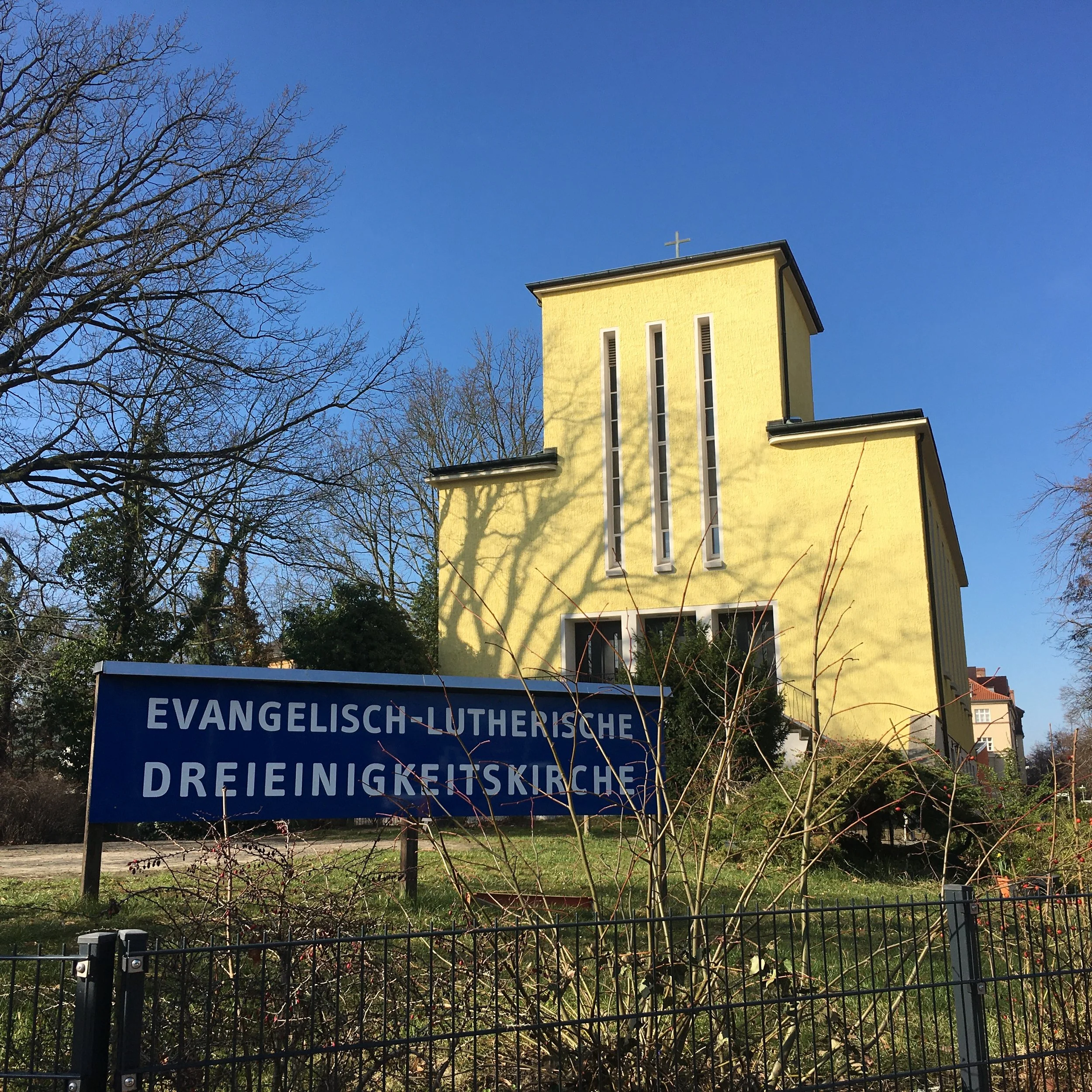Wearing a black dress, dancing across the interior of an urban mosque and waving an LGBTQ+ flag, Berfin Celebi—formerly known as "Kurdische Kween”—wants to be clear: her mosque is open for business. “Because many believe it is closed,” the caption on her TikTok video reads, Celebi believed it was time to spread the news.
The mosque in question? The Ibn Rushd Goethe Mosque in Berlin, Germany, which opened in 2017 to promote a “a progressive and inclusive Islam,” allowing women and men to pray together and accepting LGBTQ+ members.
But in October 2023, the mosque was closed after security authorities arrested several men from Tajikistan associated with the Islamic State Khorasan Province (ISIS-K) who were plotting attacks in Germany—including concrete threats against the Ibn Rushd Goethe Mosque, which they called a “place of devil worship,” and its initiator and co-founder, former German lawyer Seyran Ateş. It remained shut through the end of 2024.
Celebi, a German-Kurdish transgender woman who became known for her sometimes-provocative social media content as a drag queen before her gender reassignment transition, is proud of her now re-opened mosque and is not afraid to show it.
And to critics who call it a “fake mosque,” Celebi and those who have resurrected the project want everyone to know they are ready to welcome queer people once again.
Afghan Christian Arrested in Berlin Amidst Church Asylum Furor
Along the quiet, tree-lined streets and avenues of Berlin’s middle-class Steglitz district, police in plain clothes were staking out a church on Monday.
Their target: an Afghan man living in the basement of Trinity Evangelical Lutheran Church.
The man didn’t know it, though, and “dared to go a few steps outside of the church on the sidewalk,” pastor Gottfried Martens told CT. The man was immediately arrested.
According to Martens, the man is a Christian convert who will face “immediate danger to life and limb” if he is deported back to Afghanistan.
The congregation, which is part of the Selbständige Evangelisch-Lutherische Kirche (Independent Evangelical-Lutheran Church), a small denomination connected to Missouri Synod Lutherans in the United States, has welcomed hundreds of Farsi- and Dari-speaking refugees since 2011. According to Martens, many of them have become Christians, and the church is “committed to protecting converted Christians from deportation to their deaths.”
In recent days, that has become a contentious position in Germany.
The memorial where the synagogue once stood in Eisenach, Germany.
Contradictory Conditions: Jewish Life in East Germany, Past and Present
It’s a decidedly blustery day on Karl Marx Street in Eisenach, in the eastern German state of Thuringia. Gold and rust-tinted leaves scatter the ground of a small park marking the site of the town’s former synagogue—burned down by a Nazi mob on Kristallnacht, the nationwide pogroms on November 9, 1938.
Tucked away in a quiet corner not far from Eisenach’s theater, the memorial is one of 32 sites across Thuringia—spots where synagogues were desecrated or destroyed that night in 1938. Of the many previously active synagogues, only a few remain today. Only one has been rebuilt for weekly services. The others are marked by memorial stones and stairways leading to nowhere—including empty lots or garden plots, apartment buildings, and even a grocery store. Where the small town of Vacha’s synagogue once stood, there is now a hobby shop.
These places dot the east German landscape, from Potsdam to Zwickau, Dresden to Magdeburg. Along with other memorials like Stolpersteine—stones with brass plates bearing the names of Holocaust (Shoah) victims, laid in the pavement in front of their former homes and businesses—they stand as stark reminders of the absent presence of the region’s once thriving Jewish population. They are places where the palpable influence of eastern Germany’s Jews remains potent, even where they are no longer present.
They also signal the Jewish community’s present absence. Since the Shoah, under sometimes radically conflicting conditions, a range of diverse Jews have returned, resettled, and restored a sense of Jewish life across the former East German Republic (GDR). But the community is less-than-half what it was in pre-war Germany.
In places like Berlin, Leipzig, and Erfurt, Jews’ stories over the last century speak to lives lived between far-right politics and those of the far-left, communism and capitalism, growth and decline, remembrance culture (Erinnerungskultur) and an ominously encroaching antisemitism. Looking at East Germany–past and present–through Jewish eyes reveals today’s controversies are nothing new.
The challenges Jews in Germany faced following the Holocaust, including perils to their very existence, have shaped Jewish lives in the east for decades. The story of how under such conditions they still preserved their heritage is decades long. Now, facing declining demographics, a resurgent antisemitism, and fearing a far-right political turn, eastern Germany’s Jewish communities are once again under threat. And, once more, they are not only preserving their heritage, but claiming their place in German society.


